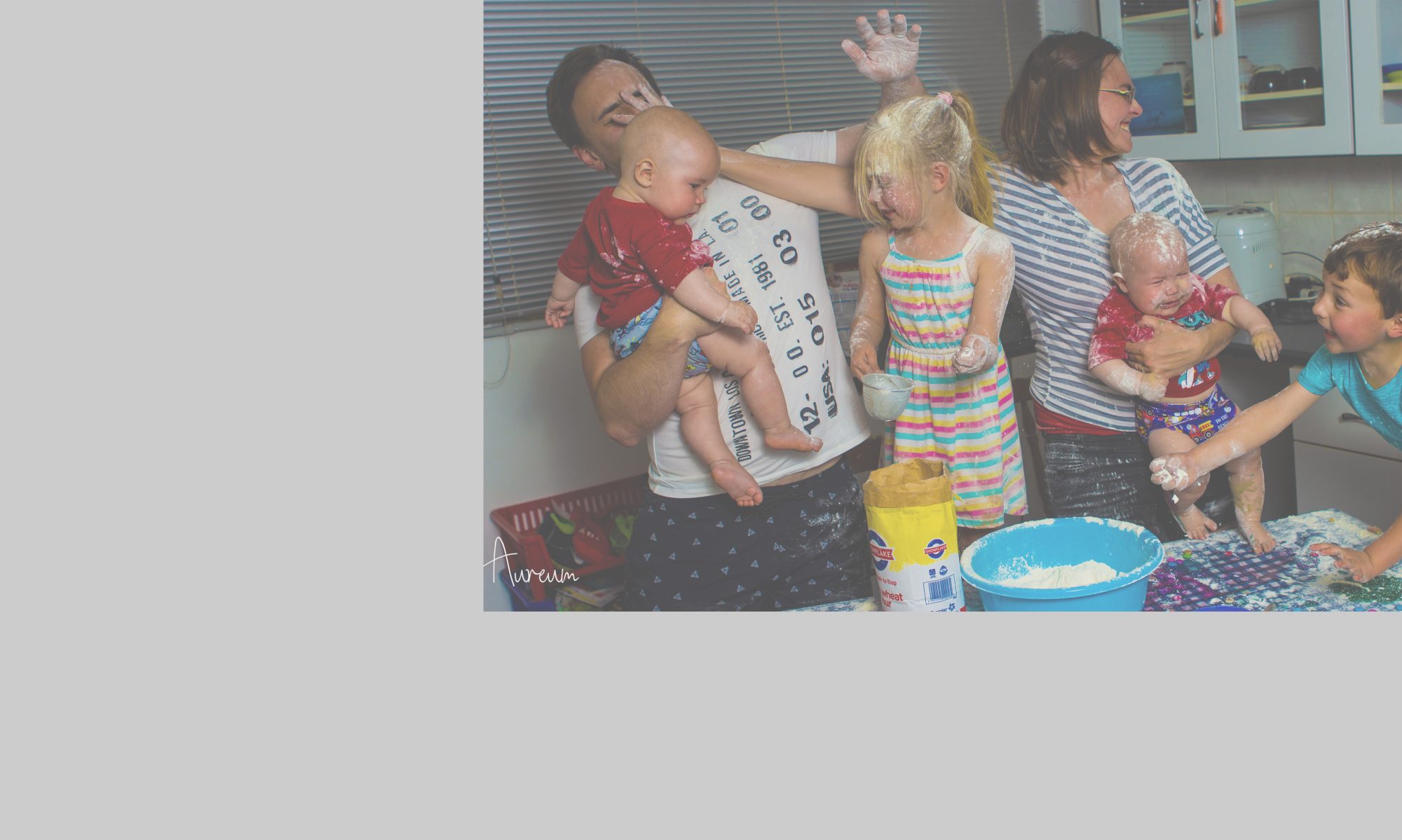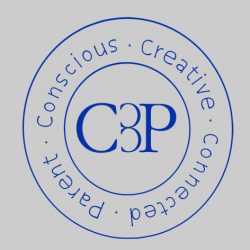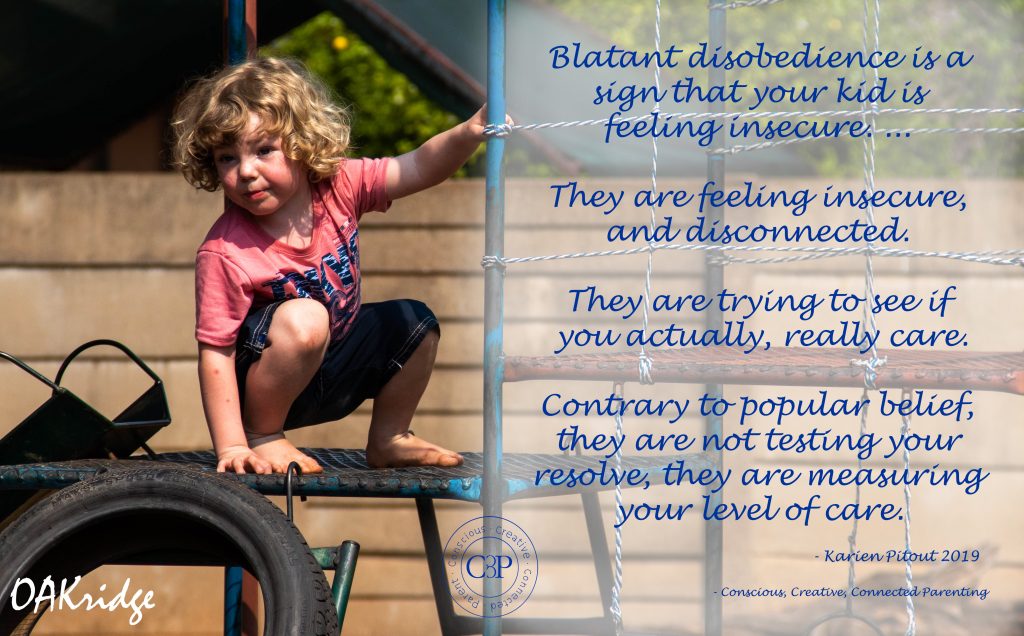I was so angry, fuming! Close to losing the plot completely. I opened my mouth and out she came, the parent I did not want to be. I screamed and ranted, threatened and had to use all my will power not to pick him up and give him a good smack. I found myself reaching over to him and at that very moment I caught sight of the look in his eyes, it wasn’t defiance, it was fear. He was scared of me! The anger drained out of me and regret set in. I never wanted my child to look at me that way, but there we stood, me a grown adult facing down with a toddler over a car seat. I dropped my arm and went down on my knees, my face filled with sorrow, regret and probably my own fear reflected. I was scared that I had reached the point of no-return.
That this was the moment the trust finally was blown to smithereens, but thankfully it wasn’t. I apologised for my reaction and for losing control. After a few minutes of hugging it out and mending our broken hearts, he got in the car seat and off we went. We have had a few more moments like this since then, moments where the parent I don’t want to be, suddenly slips out of my mouth. It happens and it happens because my focus is on the wrong goal.
We often have moments in parenting where we are the opposite of who we want to be. We often as parents have regrets of how we handled a situation. We see the mistakes our parents made and the mistakes others made and we vow not to make those same mistakes. Then in a blink of built up frustration, exhaustion and loss of control, we become what we vowed we will never be. Why does this happen? Why can we not break this cycle?
It all lies within the triggers of our own pain (experiences) and where our focus is.
The pain, is the things we were taught while growing up. The way we were raised to see the role and place of a child in society. Most parents were raised in the belief that kids are ‘lesser than’, that kids are the property of their family. Children are expected to jump at every command, because “well mother/father knows best”. Their identity is shaped by how well they fit into the family, they are expected to adjust and deal and understand far beyond their years and even beyond what is ever expected of adults when they have to accommodate themselves. The “do as I say and not do as I do”, mantra echoed through many a childhood, and here we stand as a result. Looking at our own children, clambering for control over them and struggling to see past the boundary between humans and objects to find an almost blind obedience.
So often it is stated that before having kids, “you may as well talk to the wall”, that is the best way to get used to being blatantly ignored. Ironically they are not ignoring you, they are distracted and probably not really even hearing you in the first place.
Oh, but then what about when they are looking into your eyes and not doing as was told. Surely that must be blatant disobedience, tendering for punishment. Blatant disobedience has to be punished right? Not at all. Before you stop reading, please, indulge me for a few more paragraphs.
Blatant disobedience is a sign that your kid is feeling insecure. Yes, you read that right. They are feeling insecure, and disconnected. They are trying to see if you actually, really care. Contrary to popular belief, they are not testing your resolve, they are measuring your level of care. If you explode and punish, they will be scared of you and not feel connected, actually quite the opposite. Punishment is experienced and interpreted by the brain as an attack, thus they go into fight, flight or freeze, or otherwise stated survival mode. The physiological reactions here actually close the ear canal as it shuts down their brain. So no, they learn nothing except fear and disconnection from the whole ordeal. Blatant disobedience is a cry for connection that has been missing in action for a while.
How do we parent it without punishment? Will they then learn that they can do what they want and never face the consequences of their actions? Not at all. We can parent blatant disobedience with connection. A person who feels connected will be open for correction.
Here lies the challenge for us as parents. It has to come from us. We have to parent ourselves first and we have to work on our own expectations and perceptions.
- We expect our children to respond immediately when we address them – yet we don’t respond immediately when they talk.
- We want our children to listen attentively when we ask them something – yet often we have glazed over eyes or tell them to hurry up when they engage us.
- We expect our children to be honest – yet we love telling them little “white” lies because we feel out of our depth engaging with them.
- We want our kids to answer us immediately – yet we need time to think and process and expect them to give us that space.
- We expect our children to respect our time and what we are busy with – yet we make plans without their input and expect them to drop everything immediately and do what we want them to do on our own timeline.
We cannot expect our children to do life differently than us, they model what they see, hear and experience. They do not exist in a vacuum of orders, commands and jumping through hoops. They think, breathe, work, listen, play, do and watch everything we do, they have to, because that is how they survive life.
The reality of these moments, especially blatant disobedience, is that they feel invisible to their parents. They feel like they do not matter and as though they have lost a part of their humanity in the process. Blatant disobedience is a child asking if you still care. Do you still see them? Do they still matter?
When our children do not respond the way we want them to, we lose ‘control’. We experience that loss of control in a defensive way. We feel they are the adversary and we are being attacked, questioned and downright disrespected. We believe that we are in crisis, so we respond as such. We shout and scream, we dole out punishments and make idle, unrealistic and shaming threats. We become the parent we never wanted to be. We think the control we lost was over our child, but that is not the reality. Firstly because children are not objects to be controlled, you will never have control over a person. Secondly the control we lost, was the control over our own emotions and rational thoughts. We were raised to believe that adults control children and when we cannot control our own children, we feel like we have failed and that spins us into even further into the downward spiral. This is the pain of our own childhoods that rears its ugly head.
Our focus. In life when we focus intently on something that is where we will end up. Any biker will tell you that when you go through a bend on the road, you do not look at the bend, but instead you look at the end of the bend while leaning into the turn. Why? Because you will go where you look. So looking straight into the bend guarantees an accident. In the same way, when we start focussing so much on who we don’t want to be as a parent, we accidentally become that parent.
Where we invest our energy is where the output will come from. If we focus on who we do not want to be, we will become that person, because we are not investing energy and time into the person we do not want to be. The irony of this is, that if we focus so much on who we don’t want to be, we struggle to bounce back and move past the mistakes we made. That mistake starts to look like a mountain and this makes us feel even more ashamed and scared. This fear then becomes the driving force within your relationship with your child. This is when you start to fear every tear your child will shed when they do not get what they want. This fear will drive you to become a permissive and extremely punitive parent, because you will start to feel abused by your child’s behaviour and responsiveness to your input into their lives.
Parenting with the focus on who you want to be as a parent, opens you up to invite your child in. It opens up how we look at our children’s behaviour, it becomes easier to ‘read between the lines’ and respond in the way that matters to them. It opens us up to respond with connection first and correction second. It creates opportunities for us to have WOW moments with our kids. Most of all, it opens up the door for us as parents to break the generational cycle of guilt, shame, fear and punishment.
In Course 1 we spend time on how we were raised to view the role and place of a child and how to heal that. Contact us for more information regarding this course.
7,188 total views, 3 views today


